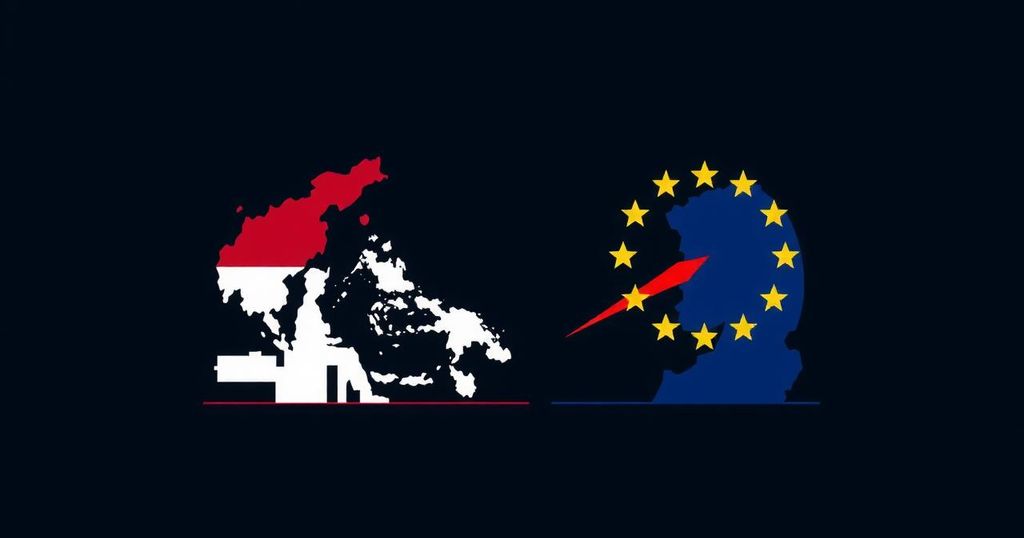Indonesia Urges Finalization of IEU-CEPA Amidst Stalled Negotiations
On September 26, 2024, Indonesia’s Trade Minister Zulkifli Hasan urged for the swift finalization of the IEU-CEPA negotiations, ongoing for over nine years. Despite Indonesia’s compromises, the process is impeded by the EU’s persistent demands, leading to stalled discussions. Domestic energy initiatives under President-elect Prabowo Subianto aim at reducing reliance on imported fuel. Indonesia proposes shelving unresolved issues to expedite the signing of the agreement, which could be amended later.
On September 26, 2024, Indonesia’s Minister of Trade, Zulkifli Hasan, emphasized the urgency to finalize the Indonesia-European Union Comprehensive Economic Partnership Agreement (IEU-CEPA), which has been under negotiation for more than nine years. Minister Hasan articulated that while the call for swift conclusion is not an ultimatum, it reflects the potential complications arising under a new government administration. He noted President-elect Prabowo Subianto’s initiative to integrate crude palm oil into a biodiesel blend, referred to as B50, aiming for self-sufficiency in Indonesia’s energy sector, which he believes would diminish the significance of crude palm oil on the international market. Despite Indonesia’s concessions during the negotiation, EU’s persistent demands have contributed to a stalemate in discussions. Minister Hasan commented, “We want the IEU-CEPA to conclude as soon as possible, but it depends on (the EU side).” He indicated that the target for completion this week hinges on the EU’s willingness to compromise. The Director General of International Trade Negotiation, Djatmiko Bris Witjaksono, acknowledged the ongoing issues, stating that unresolved similarities in policy between Indonesia and the EU hinder progress. He proposed that both parties may consider temporarily setting aside contentious discussions regarding regulations such as the EU’s deforestation policy and focus on signing the IEU-CEPA, which could later be amended as required.
The negotiation for the Indonesia-European Union Comprehensive Economic Partnership Agreement (IEU-CEPA) was initiated to enhance trade relations between Indonesia and the EU. Despite the potential advantages, the process has faced significant challenges due to differing regulations and demands from both parties. The agreement aims to facilitate mutual economic benefits, yet over nine years of negotiation has led to obstacles, particularly in agreement on environmental regulations and trade terms. As Indonesia prepares for a new government, the urgency to finalize this agreement has intensified, particularly under President-elect Prabowo Subianto’s administration, which emphasizes energy self-sufficiency and agricultural productivity.
The call for the acceleration of the IEU-CEPA negotiations highlights the complexities surrounding international trade agreements, especially when political transitions and competing domestic policies come into play. Indonesia has demonstrated willingness to concede to various EU demands, yet the resolution remains contingent upon the EU’s flexibility. As both parties assess their positions, it is critical to navigate these negotiations judiciously to foster a productive economic partnership.
Original Source: en.tempo.co




Post Comment